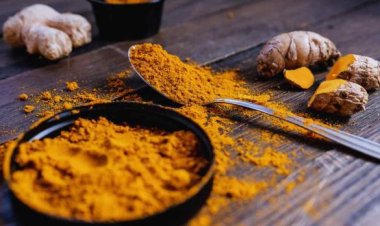What happens to your body when you give up refined oil for a month?
Giving up refined oil for a month can have several potential effects on the body.

Most Indian kitchens always have refined oil on hand, which is used for a number of cooking tasks like sautéing, frying, dressings, and baking. It is a favourite choice for cooking a variety of dishes due to its neutral taste and high smoke point. Overconsumption of refined oil, however, can have a number of negative health effects. Overconsumption has been connected to problems like obesity, heart disease, and inflammation.
As a result, should you stop using refined oil altogether? And what would happen to your body if you initially abstain from refined oil for a month? To learn more, we consulted with professionals.
Giving up refined oil for a month might have a number of possible repercussions on the body, according to Dr. Devendra Shrimal, director of cardiology at Narayana Multispeciality Hospital in Jaipur.
He added that by avoiding refined oils, you may experience advantages like improved heart health, reduced inflammation, and perhaps even weight loss. Refined oils, such as those used in fried and processed foods, are frequently high in unhealthy fats, which can contribute to weight gain, inflammation, and an increased risk of heart disease.
Nutritionist Nupuur Patil concurred and mentioned certain changes you can go through if you stop using refined oil.
Enhanced heart health: Heart disease can be exacerbated by refined oils, particularly those that are high in trans and saturated fats. Improvements in cholesterol levels and a decreased risk of cardiovascular problems may result from giving up these oils.
*Better weight management: Refined oils are high in calories, thus cutting less on them may result in fewer calories consumed overall. Weight loss or improved weight management may arise from this.
However, Omega-3s and Omega-6s, which are required for many body processes, should still be included in your diet, according to Dr. Shrimal. To maintain a balanced diet at this time, "consider including sources of healthy fats, such as avocados, nuts, seeds, and fatty fish," he advised.
The expert continued by saying that for many people, entirely abstaining from refined oil for a month can be a useful experiment because it enables you to minimise your intake of bad fats and possibly experience great health effects.
However, if you have specific dietary requirements or underlying health concerns, it is advisable to speak with a healthcare provider or dietitian before making such a shift. They can advise you on whether this adjustment is appropriate for your particular situation. To meet your nutritional needs, make sure to replace refined oils with healthier ones because fats are necessary for many body processes, Dr. Shrimal continued.
Here are some healthier substitutes Patil recommends if you want to fully cut out refined oil from your diet.
Extra virgin olive oil is high in antioxidants and monounsaturated fats. It is a mainstay of the Mediterranean diet and is linked to a number of health advantages.
Avocado oil: Avocado oil is a different source of monounsaturated fats with a higher smoke point, making it appropriate for cooking at higher temperatures.
*Coconut oil : Although debatable, virgin coconut oil has a particular flavour and is rich in medium-chain triglycerides (MCTs). Cooking is better at moderate temperatures.
Oils from nuts and seeds, such as sesame, flaxseed, and walnuts, are excellent providers of essential fatty acids. However, because of their lower smoke points, they are typically best employed in cold meals.
*Butter or ghee: If you eat dairy products, flavouring dishes with small amounts of butter or clarified butter (ghee) will help.
Natural nut butters, such as almond or peanut butter, can be used as spreads or ingredients in recipes.
She concluded by saying, "Rather than completely eliminating fats from your diet, the idea is to maintain a balanced diet and incorporate a range of good fats.













